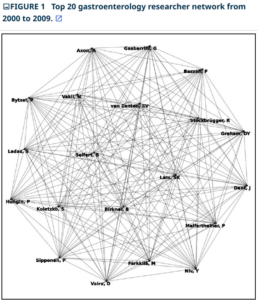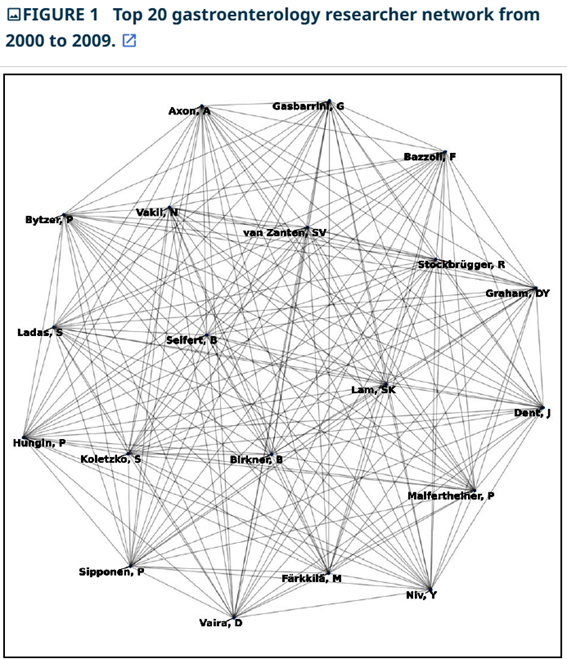HIGHLIGHTS
- This study aims to analyze the co-authorship network in Gastroenterology research from 2000 to 2023, highlighting collaborative relationships and key contributors.
- The analysis shows an evolution from a fragmented network in the early 2000s to a more interconnected structure, though isolated clusters of researchers remain.
- Key researchers like Gasbarrini G., Vandenplas Y., and Hassan C. were identified as central figures who strengthen collaborative efforts within the network.
- This study supports the future of collaborative research in Gastroenterology, offering insights to enhance international cooperation, particularly in Japan’s strong area of endoscopic technology.
ABSTRACT – Background
This study aims to analyze the co-authorship network in Gastroenterology research, focusing on publications from 2000 to 2023, to understand the collaborative relationships among researchers and identify key contributors in the field.
Methods: Using data from the Web of Science (WoS), I examined 18,855 Gastroenterology-related articles published between 2000 and 2023. The analysis was conducted using Python within the PyCharm environment. I assessed the network at both macro and micro levels. Macro-level indicators included network density, clustering coefficient, components, and average path length. Micro-level indicators included degree centrality, closeness centrality, and betweenness centrality, which helped identify influential researchers and research groups.
Results: The analysis revealed an evolution from a fragmented and sparsely connected network in the early 2000s to a more interconnected structure in recent years. Despite the overall increase in network density and clustering, full integration was not achieved, with many researchers remaining in isolated clusters. Key researchers such as Gasbarrini G., Vandenplas Y., and Hassan C. were identified as central figures within the network, playing crucial roles in fostering collaboration.
Conclusion: The study highlights the ongoing development of collaborative networks in Gastroenterology research, identifying influential researchers and groups that drive advancements in the field. The findings provide valuable insights for enhancing future research collaborations, particularly in areas where Japan excels, such as endoscopic technology.
AUTOR
OGASAWARA, Naruaki



